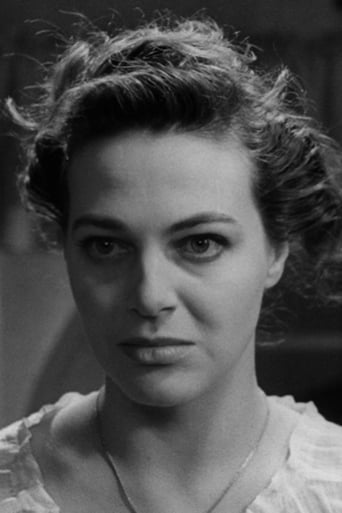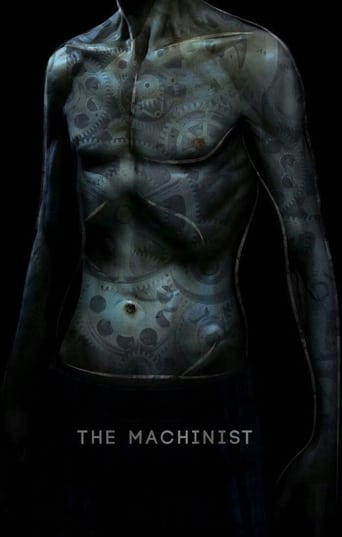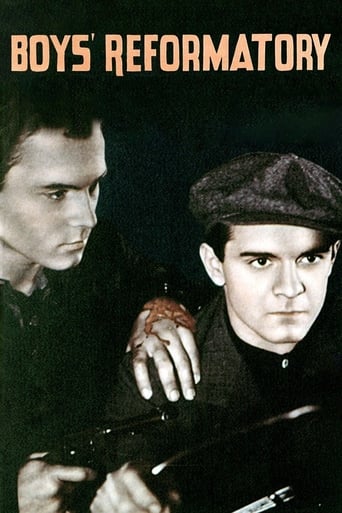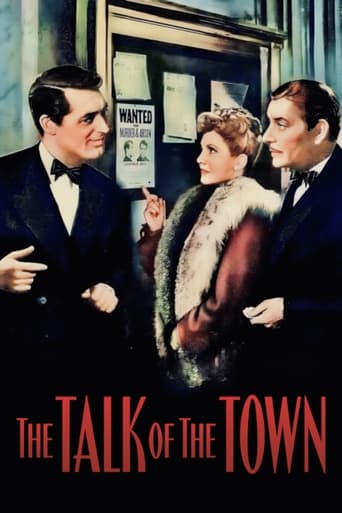
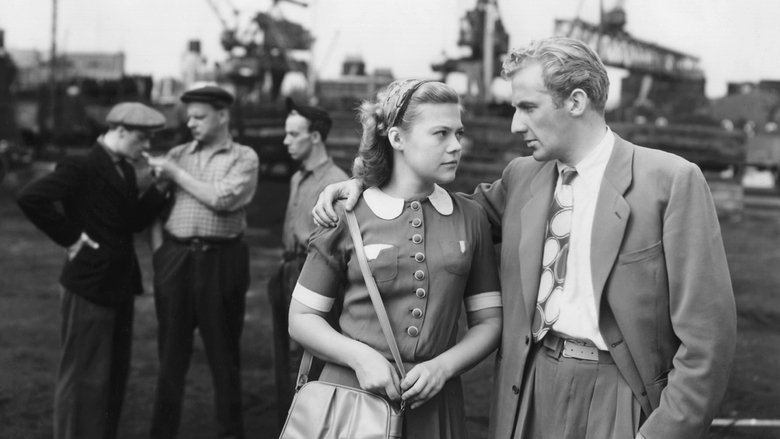
Port of Call (1948)
A suicidal factory girl out of reformatory school, anxious to escape her overbearing mother, falls in love with a sailor who can't forgive her past.
Watch Trailer
Cast


Similar titles
Reviews
Set in Gothenberg, 'Hamnstad' was Bergman's fifth feature film, his first with cameraman Gunnar Fischer, and concludes his early "neo-realist" phase - there's still plenty of documentary footage of blue collar working life and its all rather more sordid than his later films, including a harrowing section involving an abortion - but much more sparing use is made of Erland von Koch's than hitherto in anticipation of the more laid-back approach he was soon to adopt.
After making it through many of the more well-known Ingmar Bergman films, I've turned my attention to early Bergman. This Ingmar Bergman retrospective has certainly been the one with the loosest viewing schedule, which isn't to the project's detriment. With a filmmaker like Ingmar Bergman, one with pronounced themes to his films, it is interesting to see how he carries out those themes in each period of his work. In his 1948 film, Port of Call, Bergman examined the intricacies of human existence through the eyes of a suicidal factory worker desperate to escape the weight of her overbearing mother. Starring Nine-Christine Jönsson and Bengt Eklund, Ingmar Bergman perfectly explores the struggle of living a life free of the strains of complicated human relationships and the prisons of our own minds that many are often unable to escape from.Berit (Nine-Christine Jönsson) recently released from reformatory school following an attempted suicide, is back under the thumb of her manipulative and overbearing mother. She sees a way out when she meets Gösta, a man she is able to convince is the first one to experience her passions. Berit, unable to properly experience love, sees Gösta as, not only a way to break free from her mother's influence, but also to escape her laborious job at the factory. A marriage would also prove to Berit's social worker that Berit was establishing a stable foundation for herself and would be free from the threat of returning to the reformatory school. Her plans for freedom with Gösta are foiled, however, when he cannot forgive her past.Family troubles, especially overbearing or neglectful parents are a constant theme in the films of Ingmar Bergman and apparently have been since his earliest features. The intricacies of familial disconnect are fascinating, and Bergman tunes into those intricacies in a way I have seldom seem from other filmmakers. One of my favorite aspects of Bergman films is how he illustrates the brokenness of people, and how that brokenness contributes to their inabilities to form successful relationships. I continue to be amazed how keenly Bergman tapped into the human spirit. Another mainstay in Bergman's filmography is how often he depicted people working jobs they don't like in order to maintain lives that were personally unfulfilling. Much like in Summer with Monika, our protagonists in Port of Call worked jobs that robbed them of their essential human fulfillment and left them in a constant state of emotional exhaustion. The only place to relieve the stresses of the world is in the cinema. The scene in which Berit has removed herself from every disappointment of existence when she is freely laughing in a crowded theatre was extraordinary. It reminded me of the scene in Louis Malle's Au revoir Les Enfants where the only place everyone was equal and could enjoy themselves was during a screening of Charlie Chaplin's The Immigrant. Cinema as an artistic medium has relieved the pressures of existence since its inception, and Ingmar Bergman films are no exception to this rule.
While it is true that Swedish films were far more permissive in the 1940s, how frank this film is might surprise you--especially as it's quite a bit more so than director Bergman's later films.The film begins with Gösta returning from several years at sea. He's tired of the life and settles into the life of a dockworker. Very soon after, he meets a young lady (Berit) at a dance hall and they sleep together that same night. Berit worries that it's just a one night stand but Gösta does return later. However, Berit also worries that he won't stick around when he learns her past--she's been to reform school and is a mess. When she finally tells him, he doesn't know what to do. To make it worse, soon she brings a dying friend to his apartment--and she's sure there's no way he'll stick around now. Is there any hope for this couple? Aside from premarital sex, the film also deals with family dysfunction and a botched illegal abortion--all in a very non-judgmental manner. I am pretty sure it caused a bit of a stir in its day. I admired it because in just about every way the film tried very hard to deal with reality and avoid clichés. And, to avoid clichés, the film ends with many, many questions unanswered--just like in real life. It was all handled so well that I can't help but admire the film and feel it's actually a lot better than much of Ingmar Bergman's later more celebrated work, as it's simpler and less focused on depression (like many of his 1960s-70s films). Well worth seeing.
"Hamnstad" is one of the rare Swedish films focusing on family life.Its uniqueness is due to the fact that it has an eclectic mix of serious themes. These themes include bitter, harsh realities like abortion,broken home, correctional house etc. Bergman has deftly portrayed the dreary lives of its two lonely protagonists : Gosta and Berit. For this purpose, he has chosen a small provincial port town where nothing much happens. This film is a good record of how gloomy the life in Sweden (Europe) during 1940s was. Bergman has also shown us how all emotional problems are solved if lovers decide to remain true to each other. This is precisely the case of Gosta and Berit.Gosta has always led a hard life. He is a moody soul too. As a sailor, he has been out on sea for many years. For this reason he is unable to believe that some girl can enter his life in order to love him.There are doubts in Berit's mind too. As a loner, she tries hard to leave her past behind. As a young lass, Berit witnessed numerous fights involving her father and mother. This is one of the reasons why there is enormous distance between Berit and her mother. It is during one of these turbulent emotional phases that Berit meets Gosta. Even though Gosta is a tough nut to crack, his love for Berit is real. On one occasion, Gosta fights some young rascals to prove his intensity of emotional attachment for Berit. Gosta even proves that he is the ideal man for Berit as he solemnly ignores Berit's revelation that in the past, she was sent to a correction house. He urges Berit to make an earnest effort to leave her past behind. Berit has no hesitation at all in following this humble piece of advice. It is precisely in this manner that both Berit and Gosta embark on a successful journey to lead a happy, joyful life as companions for life. All of Bergman's film have a message to offer to audiences. Through "Hamnstad", he wishes to tell us all that being alone is a terrible feeling.




